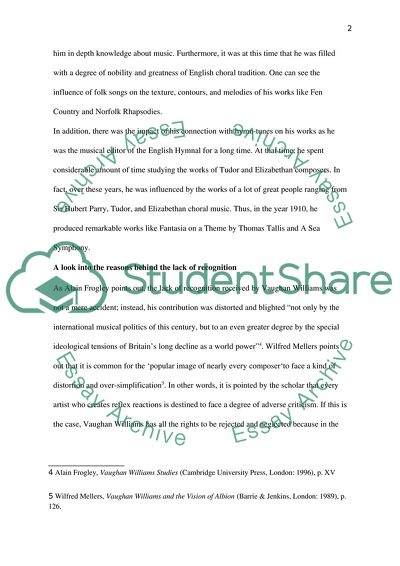Cite this document
(“Ralph Vaughan Williams Essay Example | Topics and Well Written Essays - 2500 words”, n.d.)
Ralph Vaughan Williams Essay Example | Topics and Well Written Essays - 2500 words. Retrieved from https://studentshare.org/music/1612644-ralph-vaughan-williams
Ralph Vaughan Williams Essay Example | Topics and Well Written Essays - 2500 words. Retrieved from https://studentshare.org/music/1612644-ralph-vaughan-williams
(Ralph Vaughan Williams Essay Example | Topics and Well Written Essays - 2500 Words)
Ralph Vaughan Williams Essay Example | Topics and Well Written Essays - 2500 Words. https://studentshare.org/music/1612644-ralph-vaughan-williams.
Ralph Vaughan Williams Essay Example | Topics and Well Written Essays - 2500 Words. https://studentshare.org/music/1612644-ralph-vaughan-williams.
“Ralph Vaughan Williams Essay Example | Topics and Well Written Essays - 2500 Words”, n.d. https://studentshare.org/music/1612644-ralph-vaughan-williams.


